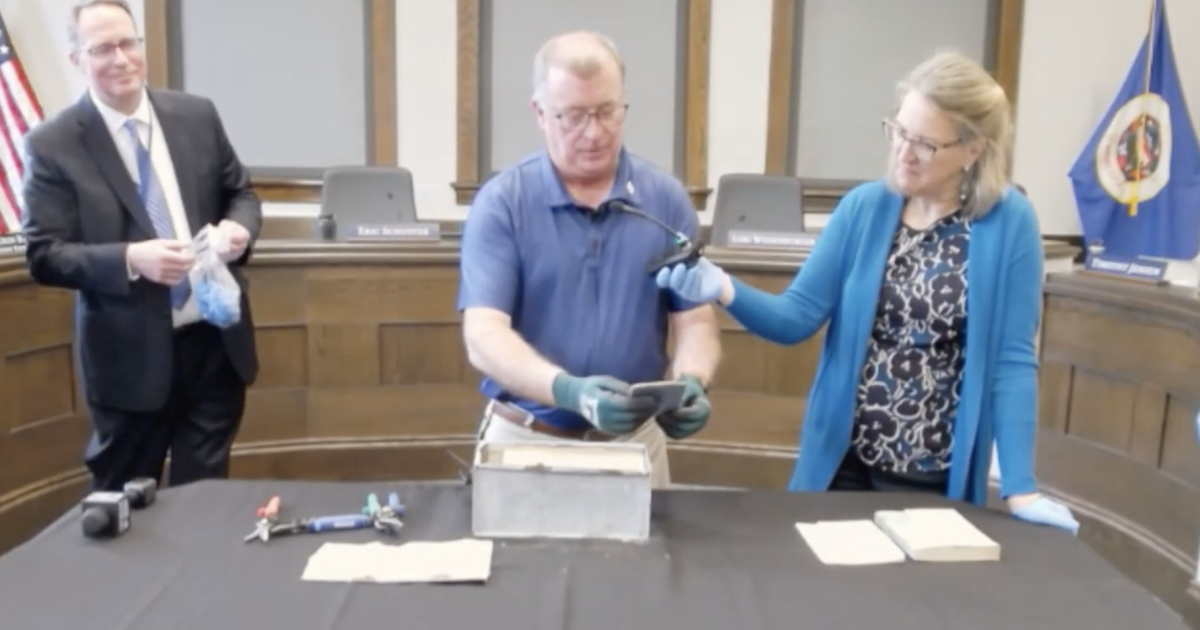Georgetown students could approve first slavery reparations fund in the U.S.
Georgetown University students are voting Thursday on a proposed student fee that would fund reparations for descendants of slaves once sold by the school. If it is passed and implemented by Georgetown, it would be the first reparations policy at any major institution in America.
The referendum would add a fee of $27.20 to be paid by every Georgetown undergraduate once a semester. A new board of trustees would allocate those funds to the descendants of the "GU272" — the 272 slaves Georgetown sold in 1838 to boost the university's finances. There are an estimated 4,000 living descendants of those enslaved people.
Students for GU272, a student group supporting the vote, calls it "an unprecedented opportunity for us to come together and take action and responsibility as a Georgetown community." Other elite universities — including Harvard and Yale — have confronted their historic ties to slavery, but never before has there been a student-led fund for reparations. The vote is online and ends at 11:59 p.m. on Thursday.
It's not clear how university officials would respond if the referendum passes. The vote is not binding for the administration and the school is not required to follow through. Under the proposal, Georgetown faculty, staff and graduate students would not be required to pay the fee.
"The university values the engagement of our students and appreciate that they are making their voices heard and contributing to an important national conversation," Georgetown spokesman Matt Hill told CBS News. "The university will carefully review the results of the referendum, and regardless of the outcome, will remain committed to engaging with students, Descendants, and the broader Georgetown community and addressing its historical relationship to slavery."
There have been mixed reactions from students leading up to the vote. The editorial board for the Georgetown Voice, a student magazine, urged undergraduates to approve the proposal, arguing that it would "move past memorialization to concretely to address how our school's past affects people in the present." The board recognized that some students may vote no out of a belief that the institution, not students, should fund reparations, and it urged them to push the administration to take action.
An editorial from two freshmen in the student newspaper The Hoya expressed an opposing view, saying the new fee would support "unjust imposition of a moral judgement on the entire student body." Critics of the proposal have pointed out its lack of specifics about how the program would work, and suggested any reparations fee for students should be optional.
Georgetown has apologized for its role in slavery, and it convened a working group to propose ways to publicly acknowledge and take responsibility for that history. But it stopped short of offering financial restitution.
The school announced in 2016 that descendants of the school's former slaves would be given the same priority in admissions offered to children of faculty, staff and alumni. Two descendants enrolled as freshmen in 2017, and two more are now in graduate programs, the university said.
The student vote comes as the issue of national reparations has resurfaced among 2020 Democratic candidates. New Jersey Sen. Cory Booker introduced a bill to research the possibility of reparations, and some other candidates — including Massachusetts Sen. Elizabeth Warren and California Sen. Kamala Harris — have voiced support for reparations in principle.
There have been calls in Congress for decades to start a dialogue about reparations, but the idea has found little momentum. Former Rep. John Conyers, D-Mich., introduced a reparations bill repeatedly since 1989, with little advancement. With Conyers now out of Congress, Rep. Sheila Jackson Lee, D-Texas, sponsored the latest version of the bill.



